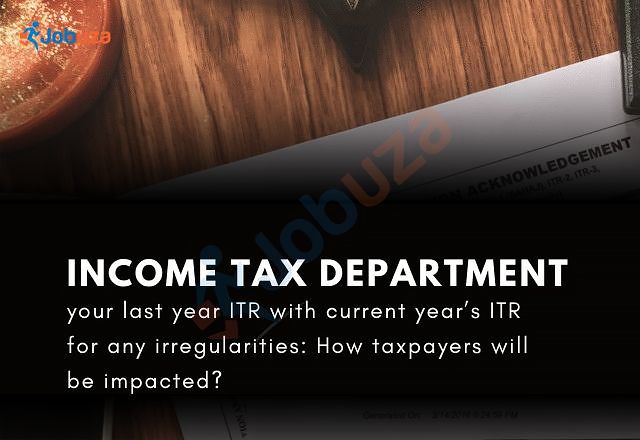Income Tax Department to Scrutinize ITR Discrepancies: Impact on Taxpayers Explained
The Income Tax Department will now compare your current year’s Income Tax Return (ITR) with the previous year’s ITR to identify any inconsistencies. This change, introduced through an amendment to Section 143(1) of the Income Tax Act, aims to detect irregularities at the time of ITR processing rather than issuing notices later.
What is Section 143(1) of the Income Tax Act?
Section 143(1) governs the processing of income tax returns after submission and verification. Currently, the department checks for arithmetical errors, incorrect claims, and inconsistencies based on the information provided in the return. The recent amendment extends this scrutiny to compare data from the previous year’s return with the current filing.
How Will the Amendment Impact Taxpayers?
The amendment is designed to minimize future tax notices by addressing discrepancies upfront. Experts believe this will help taxpayers correct errors early and ensure accurate tax filings.
Naveen Wadhwa, Vice President-Research at Taxmann.com, explains that the Income Tax Department will clarify which inconsistencies will be examined. Likely areas of focus include:
-
Reported income differences
-
Changes in disclosed assets, such as foreign assets or business assets
-
Mismatches in carry-forward losses or unabsorbed depreciation
-
Discrepancies in audit report details
These checks will only apply to inconsistencies that directly impact the computation of income or loss. For instance, if a taxpayer claims a carry-forward loss in the previous year but fails to include it in the current return, it could trigger an adjustment.
Abhishek Soni, CEO of Tax2win.in, notes that while the amendment will help taxpayers correct errors before receiving notices, clarity is needed on how adjustments will be communicated. The tax department may either notify taxpayers before making changes or adjust the return and inform them afterward. The specific inconsistencies to be flagged during processing versus those requiring a tax notice later are yet to be defined.
Expert Concerns Over Possible Challenges
While many view the amendment as a step toward streamlining tax compliance, some experts have raised concerns.
Hemen Asher, Partner at Bhuta Shah & Co LLP, highlights that Section 143(1) was initially a summary assessment provision allowing basic checks without a full scrutiny assessment. Over the years, additional provisions have expanded its scope, allowing adjustments without requiring a detailed audit.
With the latest amendment, the Central Board of Direct Taxes (CBDT) has broad discretion to define what qualifies as an inconsistency. Asher warns that this could lead to increased adjustments, potentially resulting in disputes. Small businesses and individual taxpayers who do not have dedicated tax advisors may struggle to respond to adjustment notices, leading to summary assessments and prolonged litigation.
When Will the New Law Take Effect?
The amendment is part of the Finance Bill 2025, which has already been passed by the Lok Sabha. Once approved by the Rajya Sabha and signed by the President, it will take effect from April 1, 2025, for the Assessment Year 2025-26. This means that ITRs filed in July 2024 will be compared with the returns filed for the previous year.
Key Takeaways for Taxpayers
-
Ensure consistency in reported income, assets, and carry-forward losses.
-
Review previous year’s tax return before filing the current year’s ITR.
-
Stay updated on the types of inconsistencies that may trigger adjustments.
-
Respond promptly to any tax department notices regarding return mismatches.
By staying vigilant and ensuring accurate filings, taxpayers can avoid unnecessary adjustments and potential litigation under the new rules.


